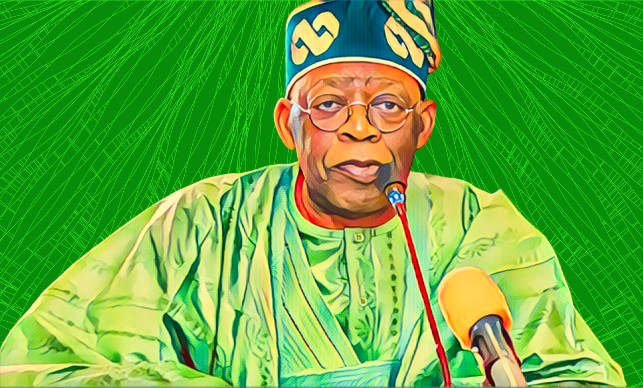In an address to the nation, President Bola Tinubu strongly dismissed criticisms from the Nigeria Labour Congress (NLC), particularly concerning the timing of their strike action, which comes just nine months into his administration. The labor unions’ discontent traces back to the government’s alleged failure to fulfill agreements made on October 2, 2023, following the contentious removal of fuel subsidies. This dispute prompted the NLC and the Trade Union Congress (TUC) to issue a 14-day nationwide strike notice to the Federal Government on February 8, demanding action.
President Tinubu, speaking at the momentous inauguration of the Lagos Rail Mass Transit (LRMT) at Ikeja Train Station, articulated his position on the matter. He expressed that it is premature and “unacceptable” for the labor unions to call for a strike at this juncture of his presidency, suggesting that any grievances should be saved for the political arena in the 2027 general elections. This statement underscores the president’s plea for more time to implement his policies and justify the trust placed in him by the Nigerian populace.
The president’s commitment to combating corruption was a significant highlight of his speech. Tinubu unequivocally stated, “Corruption is fighting back. The fight against corruption is on, we will not look back, we will fight it to ruins.” This declaration reaffirms his administration’s dedication to eradicating corruption, a menace he views as a barrier to national progress.
Amid these challenges, the inauguration of the first phase of the LRMT symbolizes a leap forward in Tinubu’s infrastructure agenda, emphasizing his belief in the transformative power of development projects. The event attracted numerous dignitaries, including Governors Babajide Sanwo-Olu (Lagos), Dapo Abiodun (Ogun), Usman Ododo (Kogi), Hope Uzodinma (Imo), Biodun Oyebanji (Ekiti), and Babagana Zulum (Borno), as well as other notable figures such as Chief of Staff to the President, Femi Gbajabiamila, and Minister of Transportation, Sa’idu Alkali.
President Tinubu lauded Governor Sanwo-Olu’s efforts and the collective vision that has driven the LRMT project from conception to reality, marking a significant milestone in the transformation of Lagos’s transportation landscape. This project, according to Tinubu, not only showcases the potential for massive economic opportunities but also reflects a broader commitment to resolving Nigeria’s economic challenges through perseverance and hard work.
In his address, Tinubu also took a moment to reflect on the broader implications of the LRMT project, viewing it as a testament to the feasibility of positive change and progress. He stressed the importance of dreaming big, staying focused, and placing the people at the heart of governance, promising that history would remember the contributions of all involved kindly.
However, the president’s remarks on the NLC’s call for a strike struck a chord, highlighting a tension between the administration’s developmental objectives and labor’s demand for immediate action on socio-economic issues. Tinubu’s stance, suggesting that the NLC should channel its aspirations through the electoral process come 2027 if it wishes to influence policy directly, has sparked a debate on the role of labor unions in Nigeria’s democracy and governance.
As the Tinubu administration moves forward, the unfolding dynamics between the government and labor unions, alongside ambitious infrastructure projects like the LRMT, will be crucial in shaping Nigeria’s trajectory toward sustainable development and economic revitalization. The president’s assurance of unwavering commitment to these goals, amidst calls for patience and collaboration, sets the stage for a critical period in Nigeria’s journey toward achieving its potential.


